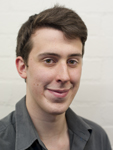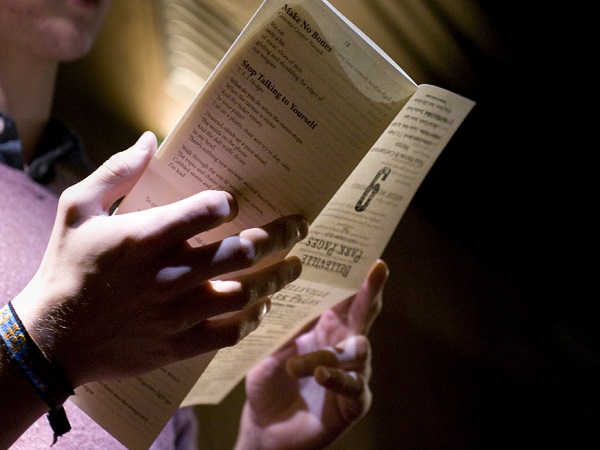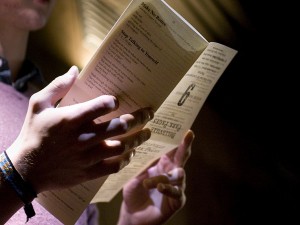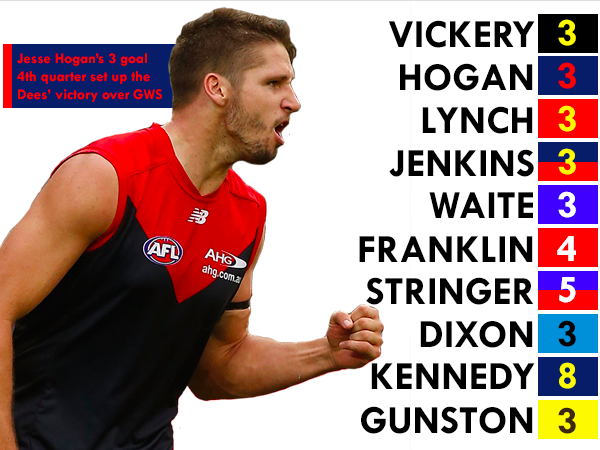You’ve stumbled into a local bar in Melbourne and all you’re greeted with is a person standing on a lit stage.
It looks and feels like a regular Melbourne band venue, but the audience is silent and there’s no music playing. The person on stage starts speaking, and in turn, the audience listens.
Don’t panic, though, you haven’t walked into a secret society meeting; chances are you have stumbled upon the Melbourne spoken word scene.
Photo: Flickr
“Spoken word encompasses a whole bunch of different poetic or performative art forms. Your traditional page poetry as well as what people would call slam poetry. It can kind of sound like a theatrical reading but then I guess that’s like any sort of general writing performance,” says Benjamin Solar, director of the Melbourne poetry site melbournespokenword.com.
“But when people are writing spoken word they think a lot about how it sounds, and the different ways to use your voice to emphasise different things which you can’t do with page poetry.”
Many believe that spoken word poetry is a dead art. Something practiced years ago by a bunch of berete wearing individuals crowded into a smoke covered room. However, the reality is that both spoken and page poetry is thriving in Melbourne.
MT @melbspokenword: Foreign Soil proves that you should take notice of the talents of Melbourne’s spoken word artists #onboardbookclub
— MWF (@MelbWritersFest) August 11, 2014
If you do endeavor to search for poetry in Melbourne you won’t have to go far, with numerous events operating out of bars, performance spaces, and sometimes communal living areas ringing out through the Melbourne night time air.
However, one of the major problems that spoken word and poetry in Melbourne has been facing is the lack of public advertisement. Spoken word receives a lot less promotion and media attention when compared to the music industry.
The media attention it does receive though is small, with only a couple of popular published outlets such literary magazines Meanjin and the Overland Literary Journal advocating the art.
One of the most popular venues, that is particularly welcome to new comers, is the Passionate tongues event, run fortnightly by Michael Reynolds at the Brunswick Hotel. More like a community than an audience, it’s a serene experience to watch each individual soak up the words of those on stage.
It truly comes as no surprise that a large portion of people who attend poetry events are either poets or aspiring writers themselves, creating an inclusive community that works towards the production of new work.
Upstart – Paul Mitchell filmed by Benjamin Jarni on Vimeo.
One of the feature artists that has performed at Passionate Tongues is Paul Mitchell, who as well as being a poet has a hand in writing fiction with a number of published releases including his most recent collection of Poetry, ‘Standard Variation’.
Another interesting thing to note about the spoken word scene is that at this point in time the majority of the events are organised by the writers themselves instead of the invested interest of local venues.
It’s also one of the few art forms where a lot of the new talent coming out is not just from younger people but also from a more middle age audience.
Paul Mitchell tells upstart there is a valid reason for this: “Often they just haven’t had the time to dedicate to poetry which really you need I think that once people and understand that they get a lot out of it. Not just in terms of being able to show the work to people but what they get out of it personally in terms of catharsis and understanding their life journey a bit. Poetry can be a very good vehicle for that.”
One of the more modern additions of spoken word has been slam poetry. Slam poetry is a little different to regular spoken word as it is performed with set guidelines in mind and at its conclusion the participants are judged and an ultimate winner is declared.
It’s most well known for being the platform of gender and equality at the moment, with a lot of feminist performers transitioning from writing to an inquisitive vocal format.
Spoken word and page poetry in Melbourne is certainly growing, however, with improved advertising support we may live in an environment where poetry is a true and visible cornerstone of our city.
 Samuel Trask-Marino is a third year journalism student at La Trobe University. You can follow him on Twitter: @SamTraskMarino
Samuel Trask-Marino is a third year journalism student at La Trobe University. You can follow him on Twitter: @SamTraskMarino








